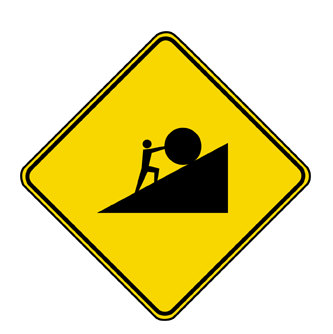 David Seaton's News Links
David Seaton's News Links"We are in trouble today because we have allowed a culture of corruption and dishonesty to permeate our institutions and pollute our public discourse." Stephen M. WaltWho would expect that such a noted "realist" in foreign affairs as Stephen Walt would say something so innocent. If only it were that simple. In reality the problem is systemic, not a result of individual or collective frailty.
As Daniel Gross wrote in Slate,
In the past few months, we've been riveted and disgusted by the exploits of scamsters like Bernard Madoff and Allen Stanford (characters who, if they didn't exist, would have to be invented by Tom Wolfe). It's both easy and convenient to hold them up as the ultimate symbols of the just-ended boom. But we shouldn't. While there was some crime in the mortgage industry, law-abiding, respectable, upstanding citizens caused the overwhelming majority of financial losses suffered thus far. Skeezy money managers and mobbed-up boiler rooms didn't create the economic catastrophe. It was visited on us by firms in the Dow Jones Industrial Average and S&P 500—companies that trace their origins back to the 1800s, run by graduates of Yale and Harvard. The people who blew up the system weren't anarchists.That we are surprised and offended by the behavior of these supposedly "law-abiding, respectable, upstanding citizens" is itself a throwback to our pre-industrial past.
One of the most interesting insights of Eric Hobsbawm, perhaps the world's foremost living historian, is that early capitalism inherited from previous phases of civilization such as feudalism and the bourgeois revolution, a wealth of valuable social assets that were fundamental to its initial success.
Social and cultural assets such as thrift, the postponing of gratification, the importance of the family unit and even what the Bible calls "the fear of God" were fundamental in creating the "work ethic" that was essential to the early success of capitalism.
However important these values might have been to our capitalist system in its foundational moment, the system in itself is indifferent to them, for its only focus is on continuous and unlimited growth and profits.
When finally push comes to shove, if something cannot be qualified on a balance sheet it will be seen as irrelevant, often with great and wrenching regret for those involved in taking the decisions, for those among us who must decide are also inheritors of western civilization and its moral and ethical values... but the logic of the system is the master, not they: that logic must take precedence over their feelings of common humanity.
A created reality has become more real than flesh and blood.
If thrift, sacrifice, solidarity, the family or any other value comes into conflict with growth and profit, it is simply left to wither. That is how the lean and lanky, thin lipped, American puritan, with his calloused hands, was inflated to obesity and taught to shake his booty and shop till he dropped.
Thomas Frank's book, "The Conquest of Cool" , will fill in some of the blanks in this process for my readers.
And unfortunately, the collapse we are living through right now, being systemic, an organic crisis, has no easy remedy. Trying to stabilize an unstable system is just as likely to destabilize it further.
Intervening in complex systems without complete knowledge is extremely perilous. It would be wise to be skeptical of stimulus plans and other remedies; unless those who intervene have the skill and knowledge of brain surgeons - economists don't - the cure will often be worse than the disease.
Jeffery Sachs (yes, the same man who once nearly destroyed Russia while "reforming" it) wrote this in The Scientific American :
The U.S. political-economic system gives evidence of a phenomenon known as “instrument instability.” Policy makers at the Federal Reserve and the White House are attempting to use highly imperfect monetary and fiscal policies to stabilize the national economy. The result, however, has been ever-more desperate swings in economic policies in the attempt to prevent recessions that cannot be fully eliminated. President Barack Obama’s economic team is now calling for an unprecedented stimulus of large budget deficits and zero interest rates to counteract the recession. These policies may work in the short term but they threaten to produce still greater crises within a few years.(...) The lessons of the high inflation of the 1970s had supposedly chastened policy makers against trying to fine-tune the economy. The quest for never-ending full employment had contributed to high inflation in that decade, which required years of economic pain to wring out of the system. Monetary policies thereafter were supposed to be “steady as she goes,” not trying to smooth out every fluctuation and business cycle in the economy. During the decade from 1995 to 2005, then-Federal Reserve chairman Alan Greenspan over-reacted to several shocks to the economy. When financial turbulence hit in 1997 and 1998—the Asian crisis, the Russian ruble collapse and the failure of Long-Term Capital Management—the Fed increased liquidity and accidentally helped to set off the dot-com bubble. The Fed eased further in 1999 in anticipation of the Y2K computer threat, which of course proved to be a false alarm. When the Fed subsequently tightened credit in 2000 and the dot-com bubble burst, the Fed quickly turned around and lowered interest rates again. The liquidity expansion was greatly amplified following 9/11, when the Fed put interest rates down to 1 percent and thereby helped to set off the housing bubble, which has now collapsed. We need to avoid reckless short-term swings in policy.Nobody is better qualified than Jeffery Sachs to know how tinkering can turn into tampering and how that tampering can destroy the lives and fortunes of millions.
What we are living today is perhaps history's most complete illustration of our "alienation": we are "strangers" to ourselves... every human being in the world has awakened at the same time to discover that everyone, everywhere lives in a system that we humans have created, but whose chaotic complexity has made it as uncontrollable as the weather and perhaps even less predictable.
Our economic system seems to be even more powerful than the weather, which it also seems to be destroying. It is certainly not our friend.
We are in no way its master, it is ours: we never have controlled it really, but this simultaneous, worldwide collapse brings that truth home and that is what is most unsettling about it. Our helplessness in the face of our "Frankenstein".
Like Gertrude Stein's, "a rose is a rose is rose", I would tell Professor Walt that, "We are in trouble today because we are in trouble today, because we are in trouble today".
That sense of helplessness is what is going to deepen and define this generation's sojourn: putting humanity back into the hands of humanity will be its challenge. DS










